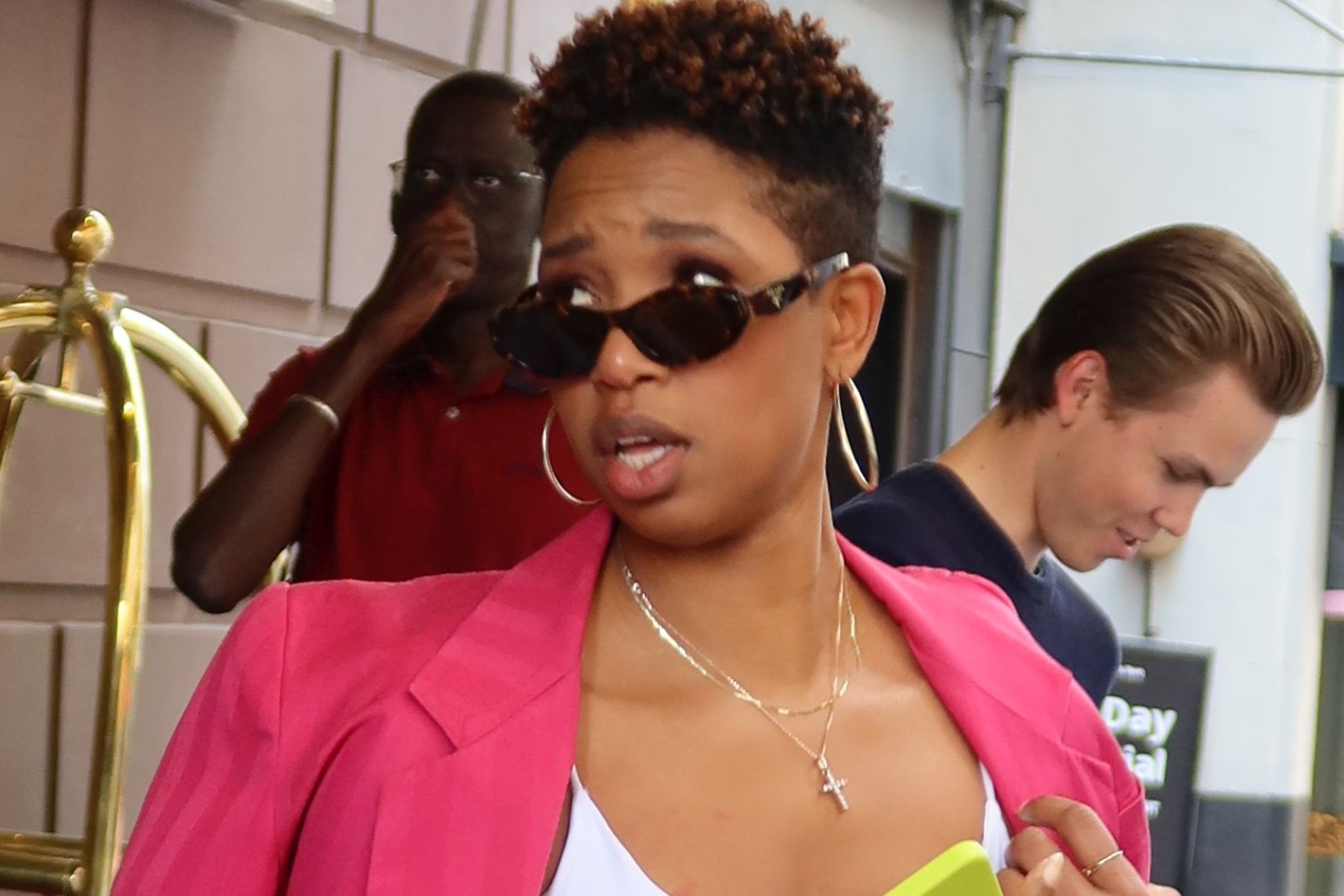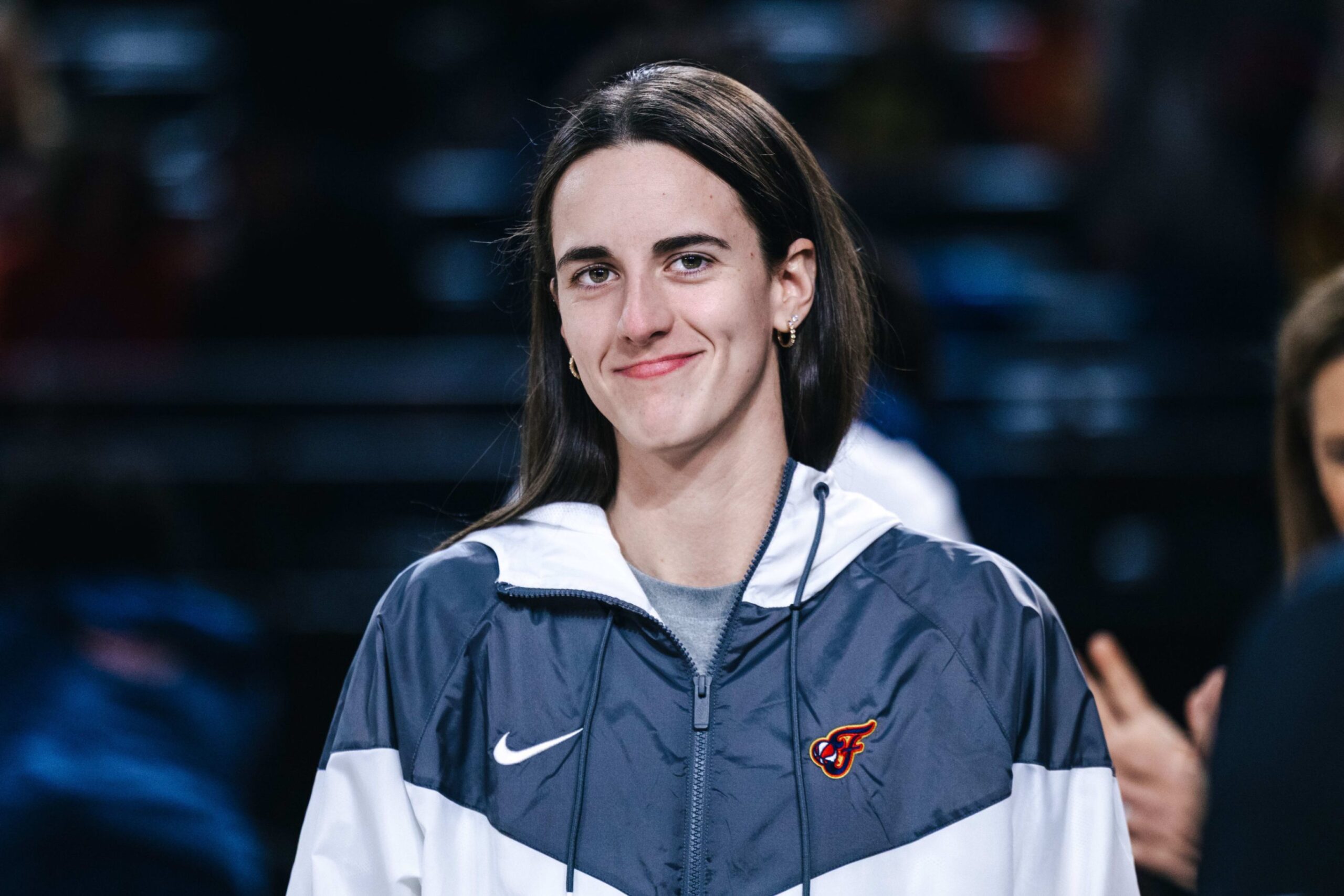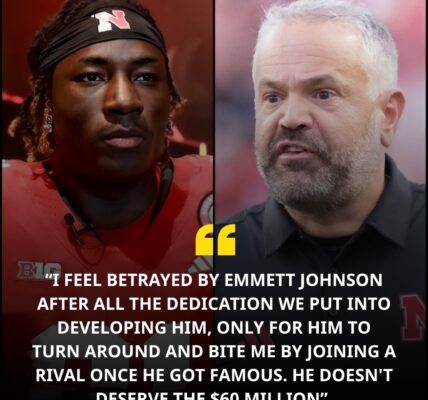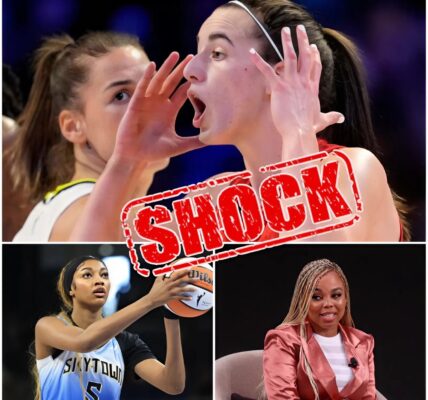Monica McNutt Faces Backlash After Viral Comments About Caitlin Clark
A Sudden Firestorm
Sports commentator and former basketball player Monica McNutt has become the center of an intense online controversy after remarks she made about the growing popularity of WNBA star Caitlin Clark.
While the situation has triggered heated debate across social media, many details circulating online remain unverified, with conflicting accounts about the aftermath and the reactions of McNutt’s employer.
What is clear, however, is that her comments sparked a national conversation about fandom, race, and the public scrutiny placed on women in sports.

The Comments That Sparked the Debate
The controversy began when McNutt attempted to explain Clark’s massive popularity among young fans—particularly young white girls. During an interview, she argued that Clark’s appeal was influenced partly by her identity as “a white girl from the middle of America,” suggesting that her background contributed to the demographic makeup of her fanbase.
Some viewers interpreted these remarks as McNutt accusing young fans of racial bias for gravitating toward Clark over other players, including Angel Reese or other Black athletes.
Others argued McNutt was simply analyzing cultural trends and how identity can shape athlete-to-fan connections.
Regardless of intent, the backlash was immediate and intense.
Online Outrage and Divided Reactions


Within minutes of the clip circulating online, thousands of fans took to platforms such as X (formerly Twitter) to criticize McNutt’s comments.
Many argued that admiration for Clark stems from her exceptional shooting ability, confidence, and record-breaking performances—not from race. Comments included:
-
“So young Black girls can look up to Black athletes, but white girls can’t admire Clark? Makes no sense.”
-
“Caitlin is popular because she’s great. That’s it.”
-
“This does nothing but divide the fanbase.”
Others pushed back, defending McNutt’s broader point:
-
“She’s not wrong—fanbases often form around people who look like them.”
-
“This is sociology, not racism.”
-
“She acknowledged Clark’s success while also analyzing demographics.”
The debate became polarized, with both sides claiming the other was misunderstanding—or intentionally twisting—McNutt’s words.
Unverified Claims of Job Consequences
:max_bytes(150000):strip_icc():focal(999x0:1001x2)/caitlin-clark-indiana-fever-042224-98889a0758fb4446b49de43719c6a748.jpg)
:max_bytes(150000):strip_icc():focal(999x0:1001x2)/caitlin-clark-indiana-fever-042224-98889a0758fb4446b49de43719c6a748.jpg)
Soon after the clip went viral, several social media posts claimed that McNutt had been removed or suspended from her sports network role.
However, no official statement confirming these claims has been released, and the information appears to stem from rumor rather than fact.
What is certain is that many advertisers, commentators, and fans applied pressure to the network after McNutt’s remarks, calling for accountability, clarification, or disciplinary action.
Until the network offers an official confirmation, reports of firing remain speculative and unconfirmed.
The Larger Context: A Long-Running Debate
This controversy did not emerge in a vacuum. McNutt has commented on Caitlin Clark’s impact before, including a widely debated take in 2024 when she said Clark deserved “only 60%” of the credit for the Indiana Fever’s playoff run.
So when a BBC interviewer recently asked McNutt why so many young girls idolize Clark, every word she said was under a microscope.
Her response—that Clark being a white Midwestern athlete gave her a cultural resonance beyond basketball—immediately fueled renewed scrutiny.
Online reactions ranged from frustration to support, with some fans accusing McNutt of bitterness, while others said she was simply speaking uncomfortable truths about sports demographics and representation.
The Fan Reactions: Passionate and Personal
The discussions around McNutt’s comments evolved into broader questions about:
-
why certain athletes attract massive fan followings,
-
how race and geography influence public perception,
-
and whether analysts should address these patterns directly.
Supporters of Clark felt McNutt unfairly reduced the star’s achievements to identity rather than talent.
Supporters of McNutt countered that acknowledging demographic influences does not negate Clark’s greatness.
The conversation revealed how emotionally invested fans are in both athletes—and how sensitive the topic remains.
A Deeper Issue in Women’s Sports
At its core, the situation highlights a recurring theme in women’s athletics:
the struggle for unity amid rising visibility.
The WNBA and women’s basketball have been growing quickly, and Caitlin Clark’s meteoric rise has brought unprecedented attention, ticket sales, and sponsorships.
But with increased spotlight comes increased tension, especially when discussions intersect with race, representation, and media narratives.
McNutt’s comments—interpreted in wildly different ways—show how fragile and passionate the ecosystem surrounding women’s sports has become.
What Happens Next?


Whether or not McNutt faces official consequences, the controversy has already carved a permanent mark on the conversation around women’s basketball.
It has forced fans, analysts, and media networks to confront difficult questions about identity, fandom, and the role of public figures in shaping those discussions.
As Caitlin Clark continues to ascend and voices like Angel Reese, Lexi Hull, and others remain central to the sport’s growth, debates like this will likely resurface.
One thing is clear:
women’s sports are more visible—and more passionately defended—than ever before.
And this latest chapter proves that the dialogue surrounding them is only becoming louder, sharper, and more consequential.




